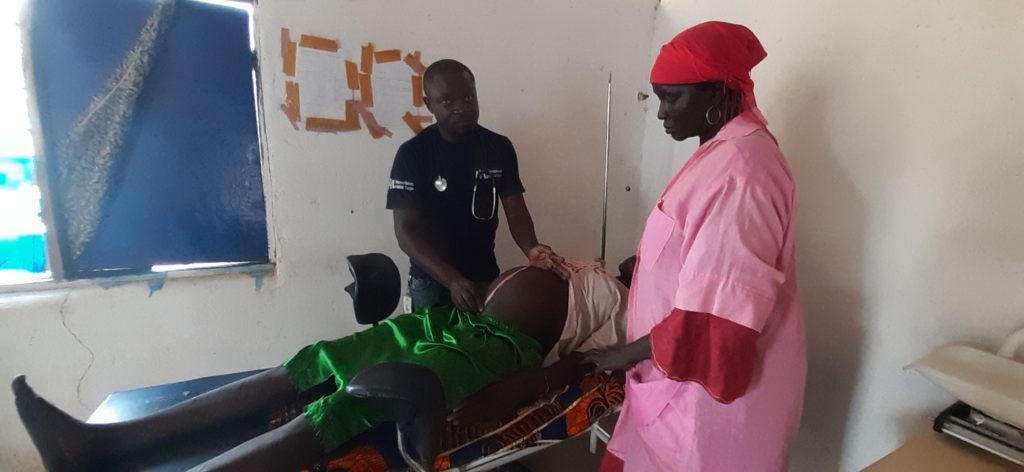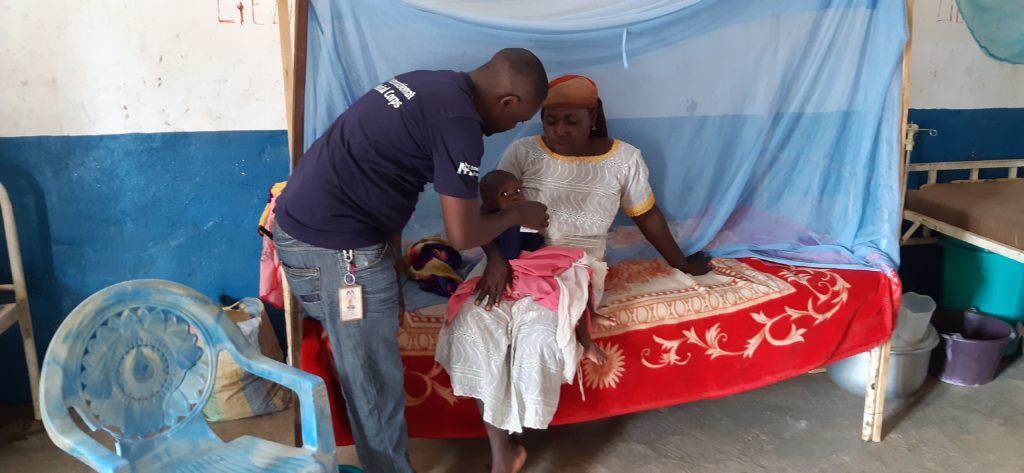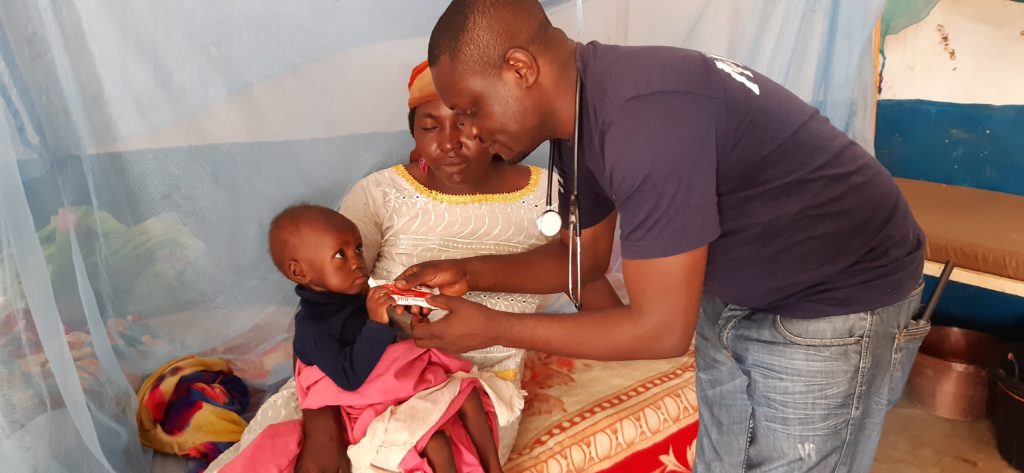The Central African Republic (CAR) often tops lists of the world’s most neglected or forgotten humanitarian crises. One-quarter of its population has been displaced by conflict and more than half desperately need humanitarian support—yet the tragedy remains underreported and aid efforts underfunded. Armed groups control much of the country, outbreaks of violence continue unabated and criminality is on the rise, putting humanitarian workers under constant threat of attack.
By most accounts, the situation seems hopeless. But to Dr. Olivier Mabwende, who heads International Medical Corps’ maternal health efforts in Tiringoulou, healthcare workers in CAR can create a path to peace and reconciliation in a country plagued by decades of conflict. Their work, by necessity, bypasses tribal, ethnic or religious distinctions to reach the heart of what it means to be human. Lives at stake provide a visceral reminder that, despite all that divides us, the instinct to survive is our most essential shared experience.

Since receiving his degrees in medicine and surgery 10 years ago, Olivier has known only one job: “saving lives.” He was born in the war-torn Bukavu region of the Democratic Republic of the Congo (DRC) in 1983, to a poor family of eight children. Throughout a childhood he calls “complicated,” he watched his mother struggle to educate and feed her children. Even so, Olivier’s mother always encouraged him to study hard. He went on to excel in medicine—an unlikely path for a boy born into his circumstances.
“Seeing my mother suffer for us was not easy,” says Olivier. He thinks this explains why he feels so much compassion for the poor women with sick children that he treats, stating, “I see my mother in all the women I meet on my way.”
After graduating and working for a year in DRC, Olivier served in neighboring, post-genocide Rwanda for four years as a clinical director at Mugonero Adventist Hospital. He joined International Medical Corps in Sierra Leone at the height of the West Africa Ebola crisis, working in a highly stressful environment at an Ebola treatment center. From 2016 onward, Olivier has managed our field site in Bria, CAR, a region rife with violence, displacement and massive human suffering.
Ongoing political and military crises in CAR have weakened—and in many places decimated—the country’s healthcare system. In the areas where International Medical Corps works, no health facilities existed at all, and women—highly oppressed in a radically unequal society—lacked quality health services altogether. Says Olivier, “Women in the community find their only hope in International Medical Corps, without which the death of pregnant women and children in the area would be assured.”
Through our free medical services, women in CAR receive prenatal care to monitor their pregnancies and catch complications before they become deadly. We also provide safe deliveries through doctors, midwives and traditional birth attendants, as well as emergency obstetric care. Our referral system helps women in remote areas access secondary hospitals—which, Olivier says, has decreased the death rate of rural women. We also provide immunizations and nutrition support for women and children, case management to help survivors of gender-based violence, and family planning and sexual education. Our local health teams provide community education to break down attitudes and practices that harm women, and work to ensure that women are able to—and do—access our lifesaving services.

With an abundance of passion and compassion, Olivier is driven to “help those most in need” and “enjoys every minute of saving lives.” He loves carrying a healthy newborn baby and seeing the smile on a new mother’s face. Still, the work is not easy—or safe. There has been a steady uptick of violent attacks on aid workers in CAR, and armed groups continue to ravage already displaced and suffering populations, causing constant surges in the country’s humanitarian needs. Health workers like Olivier represent extremely rare support for those in need, amidst a dearth of human capital.
They work diligently to save one life at a time, particularly the most vulnerable women and children. This transforms individuals, families and communities—but what of the country at large, still waiting for a peace that feels so elusive? Olivier believes he and his colleagues are supporting that process, too.
“In every person I see, I treat my mother, my father, my brother and my sister,” he says. “I get to love people in neutrality, regardless of their ethnic, religious and tribal differences.” Though not a native of CAR, he enjoys “being an integral part of the community I serve.” To Olivier, humanitarian aid work makes one a true citizen of the world: “It allows us to bring aid far beyond our own countries, in communities affected by crises and that have lost all hope.”
After all, a hospital can be a microcosm of humanity. Here, people from warring tribes must share space, food and resources to survive and thrive. When Olivier sees “enemies” helping each other at the hospitals in CAR, he feels truly hopeful for the country’s future. In this way, International Medical Corps’ work not only saves lives—it brings people together and helps them to help each other. In places where division can be deadly, providing this opportunity for unity might be the most lifesaving act of all.
***
International Medical Corps provides lifesaving services in CAR to internally displaced people, refugees and conflict-affected host communities in three regions, and remains one of the few international organizations with a presence in the northeastern region. International Medical Corps began working in CAR in 2007 by providing services to Sudanese refugees in the Haute Kotto region. Since then, International Medical Corps’ portfolio in CAR has expanded to include health-systems strengthening and service; nutrition; water, sanitation and hygiene (WASH); and child protection.
